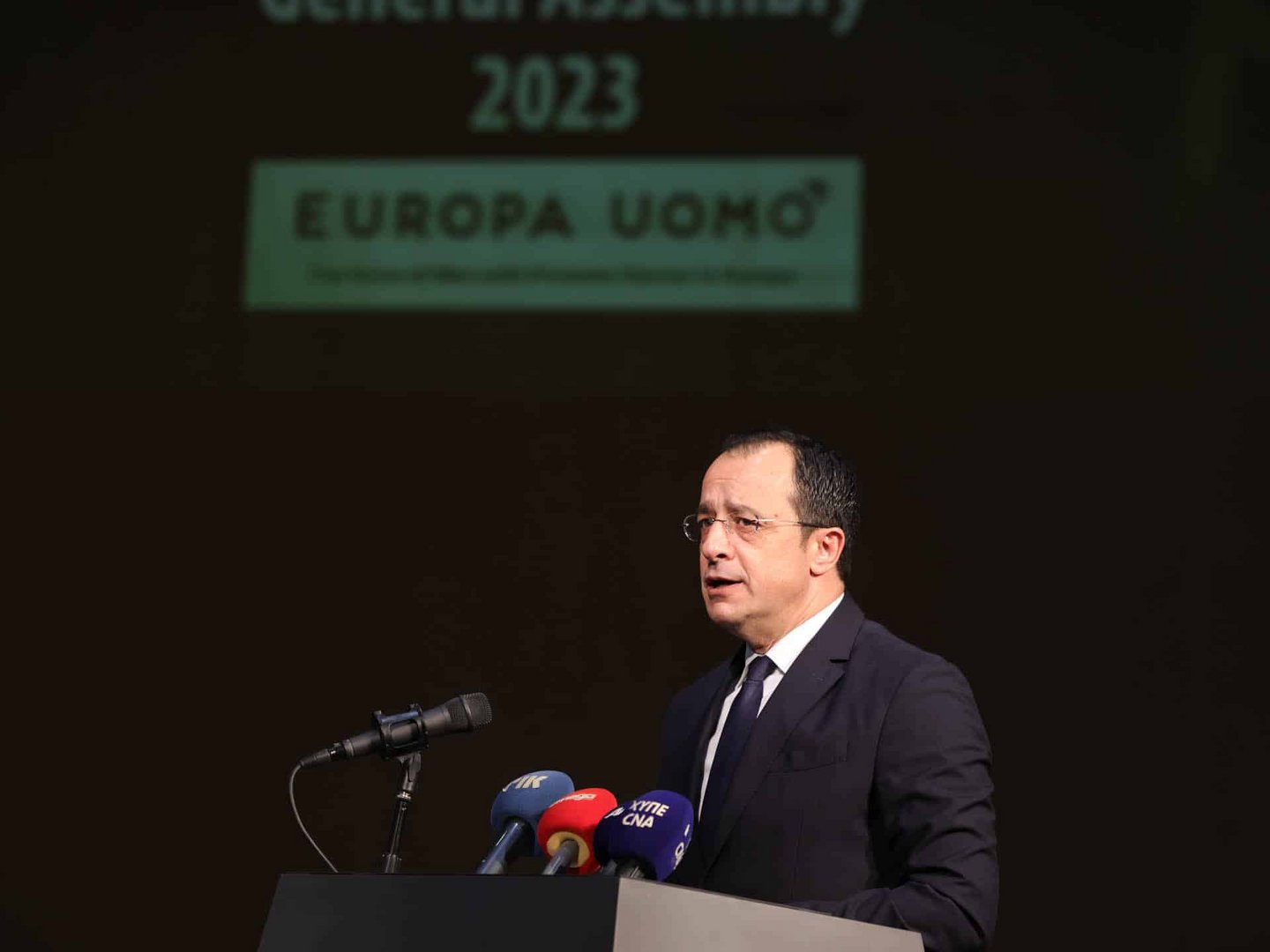Screening for prostate cancer will soon be offered systematically to men through the general health scheme to help prevent the disease, President Nikos Christodoulides said on Friday.
Prevention is a key issue in all cancers, the president said at the 19th General Assembly of the Confederation of Europa Uomo Europe held at the Larnaca Municipal Theatre.
Prostate cancer is the most common oncological disease in the male population, with one in six men diagnosed with the disease, usually after the age of 50, Christodoulides said citing relevant statistics.
“Early detection of prostate cancer significantly reduces mortality from the disease, as early detection brings high success rates in treatment,” he said.
This is the area where Europa Uomo Cyprus’ achieved most important success, the president noted, welcoming the delegations of all the countries in Larnaca.
Within this framework, the health ministry, in collaboration with Osak’s committee on cancer, are working to include as soon as possible a screening test, the PSA, in the population screening programmes in Cyprus.
The president explained that this move will mirror the standards of breast screening for women which is currently in place.
Furthermore, a specialised reference centre is also on the cards, which will include the existing centres and will helm make synergies on prostate cancer issues.
“It is important to have such a centre, making use of the existing ones, because it will help to a significant extent so that it is not a taboo [the issue of prostate cancer] which for many years has been a taboo in our country,” Christodoulides said.
He also reiterated his firm commitment to strengthen and upgrade the general health scheme (Gesy).
As a former foreign minister, the current president, I participated in several events of Europa Uomo Cyprus such as the Blue Route in Limassol over the last two years. “I know first-hand the important work that you are doing, the vision that the Board of Directors of the Association has, which I congratulate for its actions and campaigns that very rightly focus on prevention,” he said.







Click here to change your cookie preferences